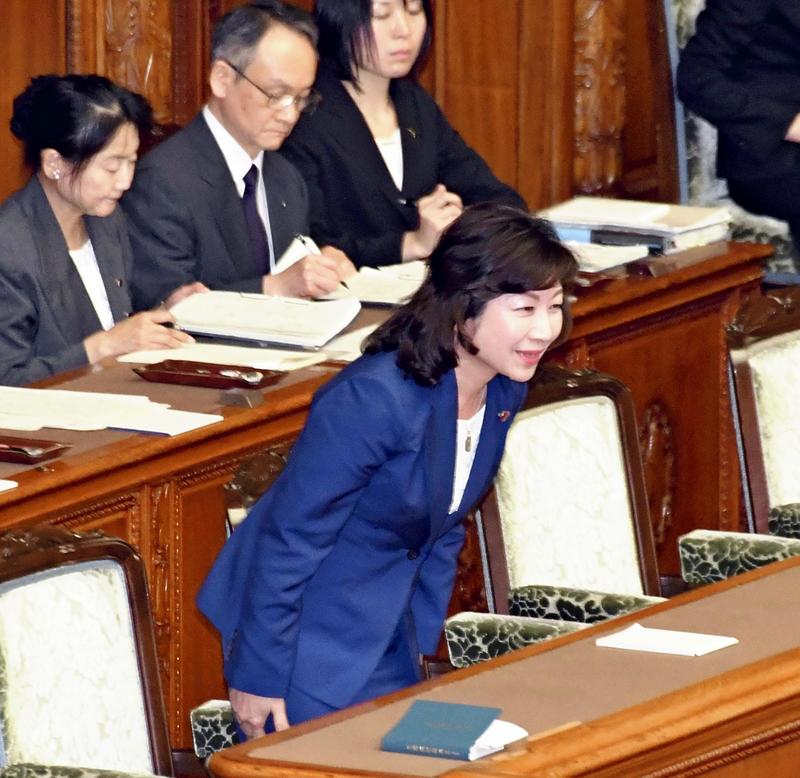
In light of the enactment of a law promoting gender equality in politics, which calls on political parties and other entities to field an equal number of male and female candidates in elections, the ruling and opposition parties plan to step up efforts to recruit female candidates. In national elections, however, it will not be easy to narrow the gender gap. The Liberal Democratic Party has limited capacity for new members, as it already has many incumbents, and the opposition parties plan to put priority on the unification of candidates through their coalition.
"This is the first step toward creating politics that will reflect diverse views and public opinions. First of all, it is important to convey an idea [of the law]," Seiko Noda, the minister in charge of women's empowerment, said to reporters after seeing the law enacted at a plenary session of the House of Councillors.
Fumio Kishida, chairman of the LDP's Policy Research Council, expressed his intention to promote measures to ensure women's participation in politics at a press conference on Wednesday, saying, "We have to make various efforts to create an environment in which highly motivated women can easily try to engage in politics."
In the House of Representatives elections in October last year, the LDP pledged to take the initiative in fostering female candidates. However, the party fielded only 25 female candidates, making up just 7.5 percent of its total number of candidates. In the 2016 upper house election, the party's female candidates numbered 12, which was 16.4 percent of its total.
As the LDP is undeniably inferior in terms of initiatives when compared to some other parties, whose female candidates exceed 20 percent, some female LDP Diet members have expressed dissatisfaction. "We have not yet got out of a male-dominated society," Seiko Hashimoto, chairperson of the LDP's General Assembly of Party Members of the House of Councillors, said.
This fiscal year, the LDP's Women's Affairs Division has started the "Women's future leadership program," targeting women aged 18 or older who are interested in politics, as part of efforts to foster suitable people as Diet members.
However, there are a limited number of constituencies where the party can field first-time candidates in next summer's upper house election, as it won consecutive upper house elections in 2013 and 2016. Also, regarding the next lower house election, there are only about 10 single-seat constituencies in which the chairpersons of electoral district branches or candidates who can run for a seat are not decided. "It's necessary to take time," said Shinako Tsuchiya, a member of the House of Representatives.
Meanwhile, the Democratic Party for the People's headquarters for the promotion of gender equality announced on Wednesday its policy to set numerical targets for both female and male candidates with the aim of recruiting potential female candidates.
The DPFP's basic policy states that the quota system -- in which certain numbers of seats and candidates are allotted to women -- should be introduced in national elections.
Kiyomi Tsujimoto, Diet affairs chief of the Constitutional Democratic Party of Japan, also welcomed the enactment of the law at a party meeting on Wednesday. "I would like to put some soul [into the law] by making efforts to field female lawmaker [candidates]," Tsujimoto said.
However, in the 2016 upper house election, four opposition parties including the now-defunct Democratic Party, and the Japanese Communist Party, unified their candidates in 32 single-seat constituencies across the nation to counter the ruling parties. It is likely that opposition parties will field many unified candidates in the next upper house election. "Coordination of candidates is the top priority, so we can't start thinking about the ratio of male and female candidates," a senior official of the CDPJ said.
Read more from The Japan News at https://japannews.yomiuri.co.jp/







